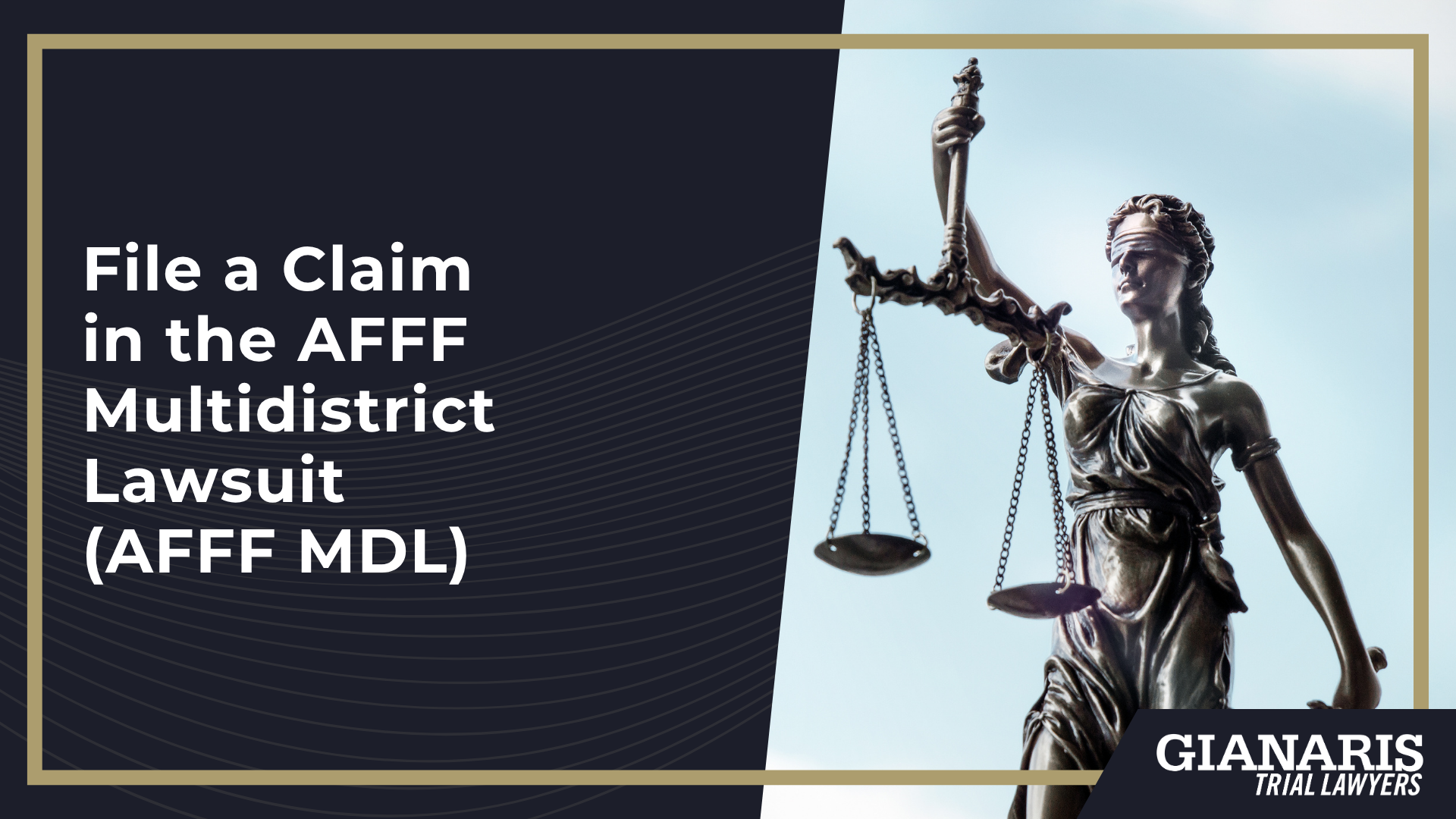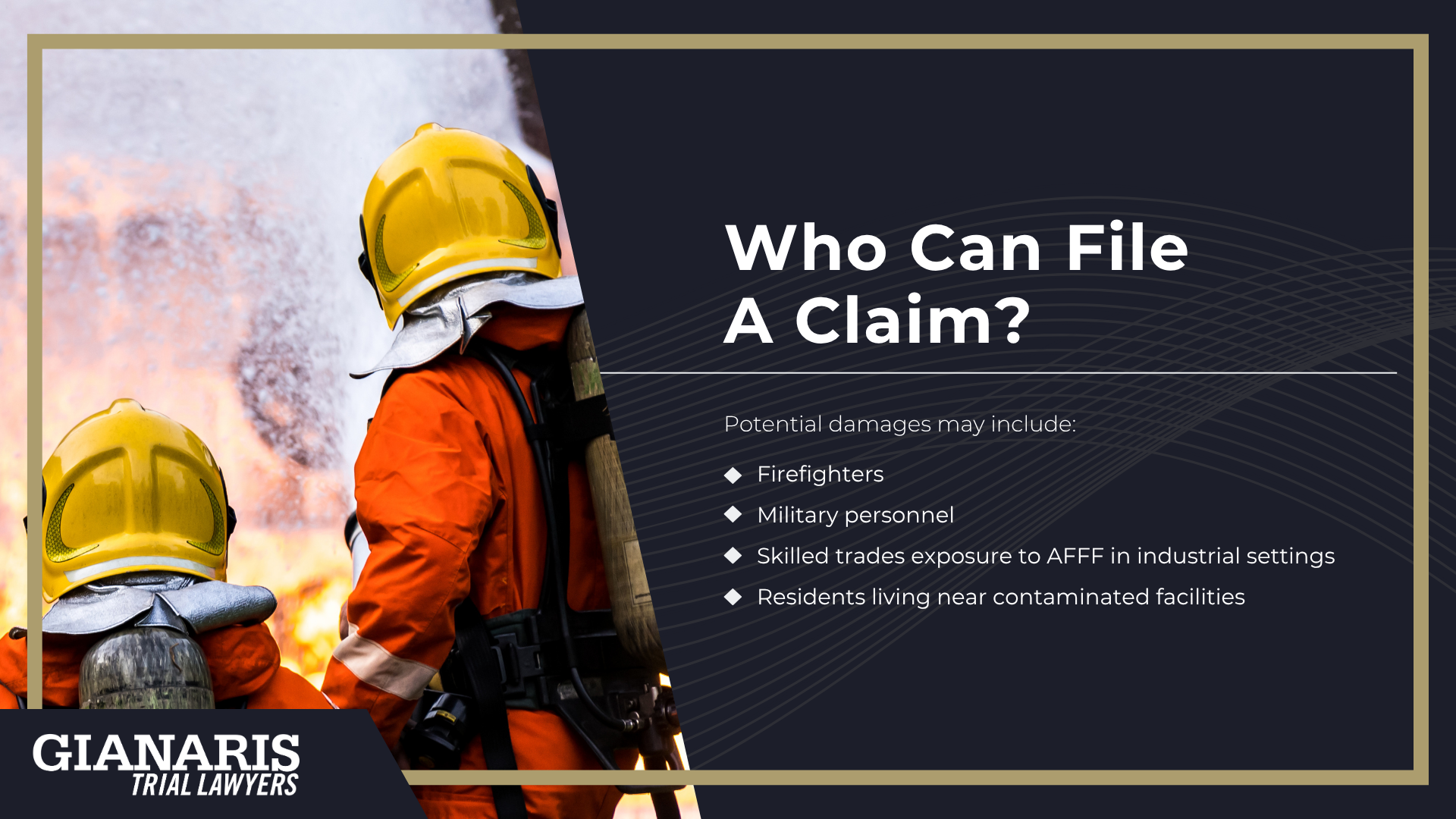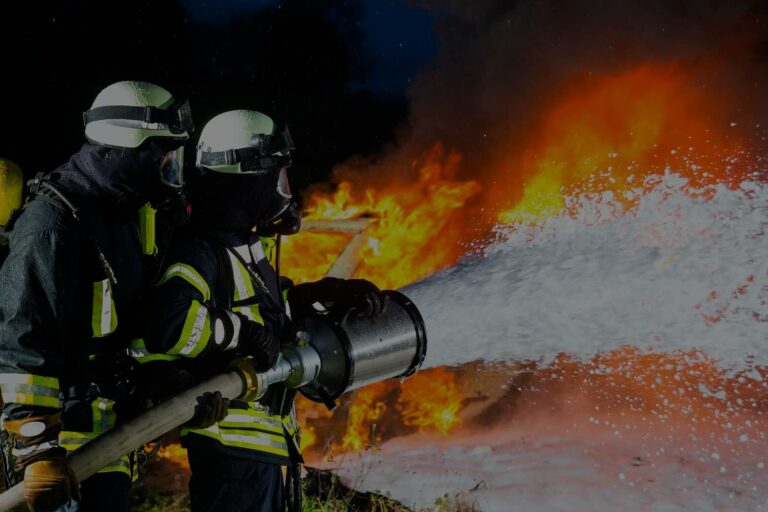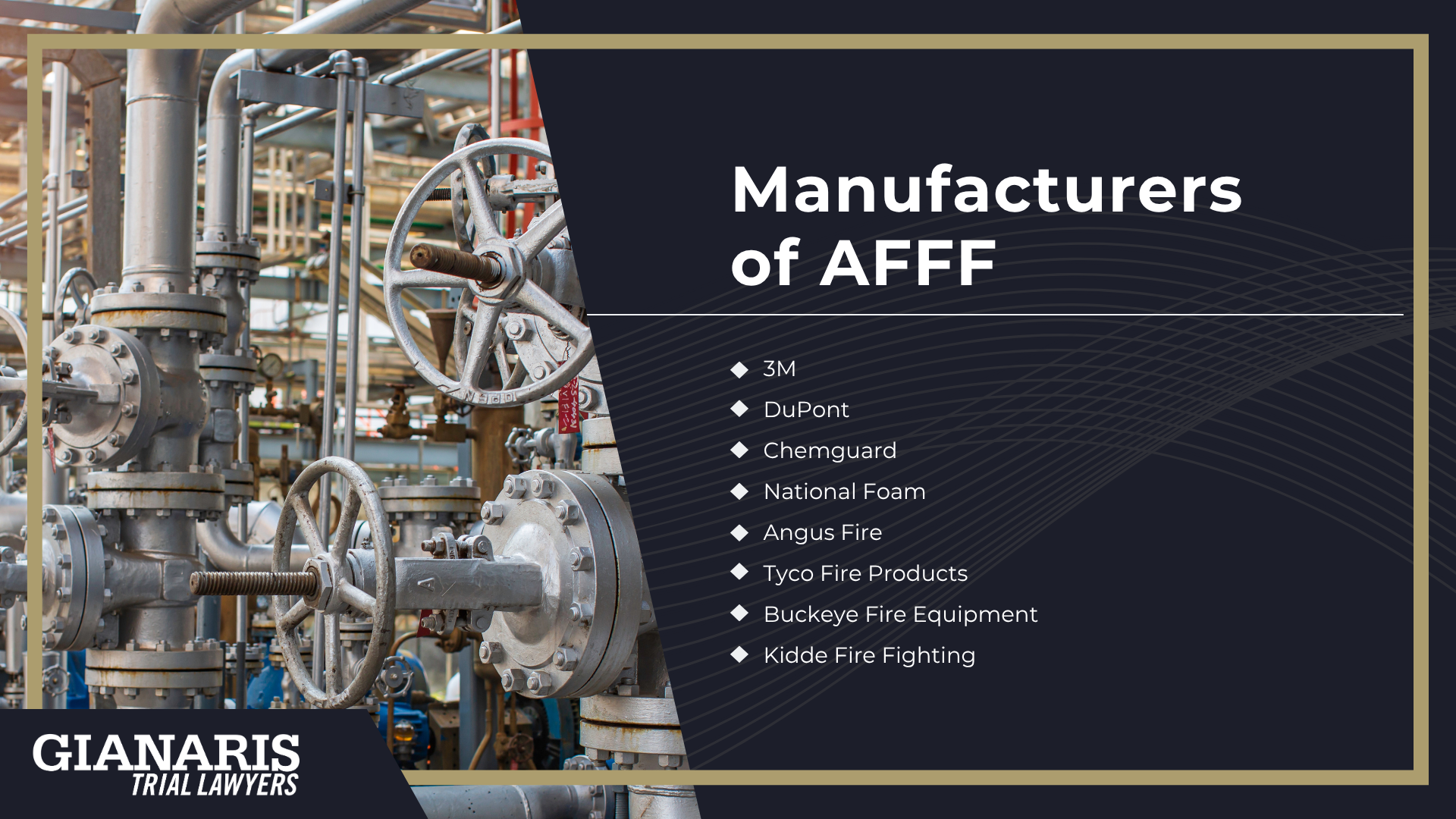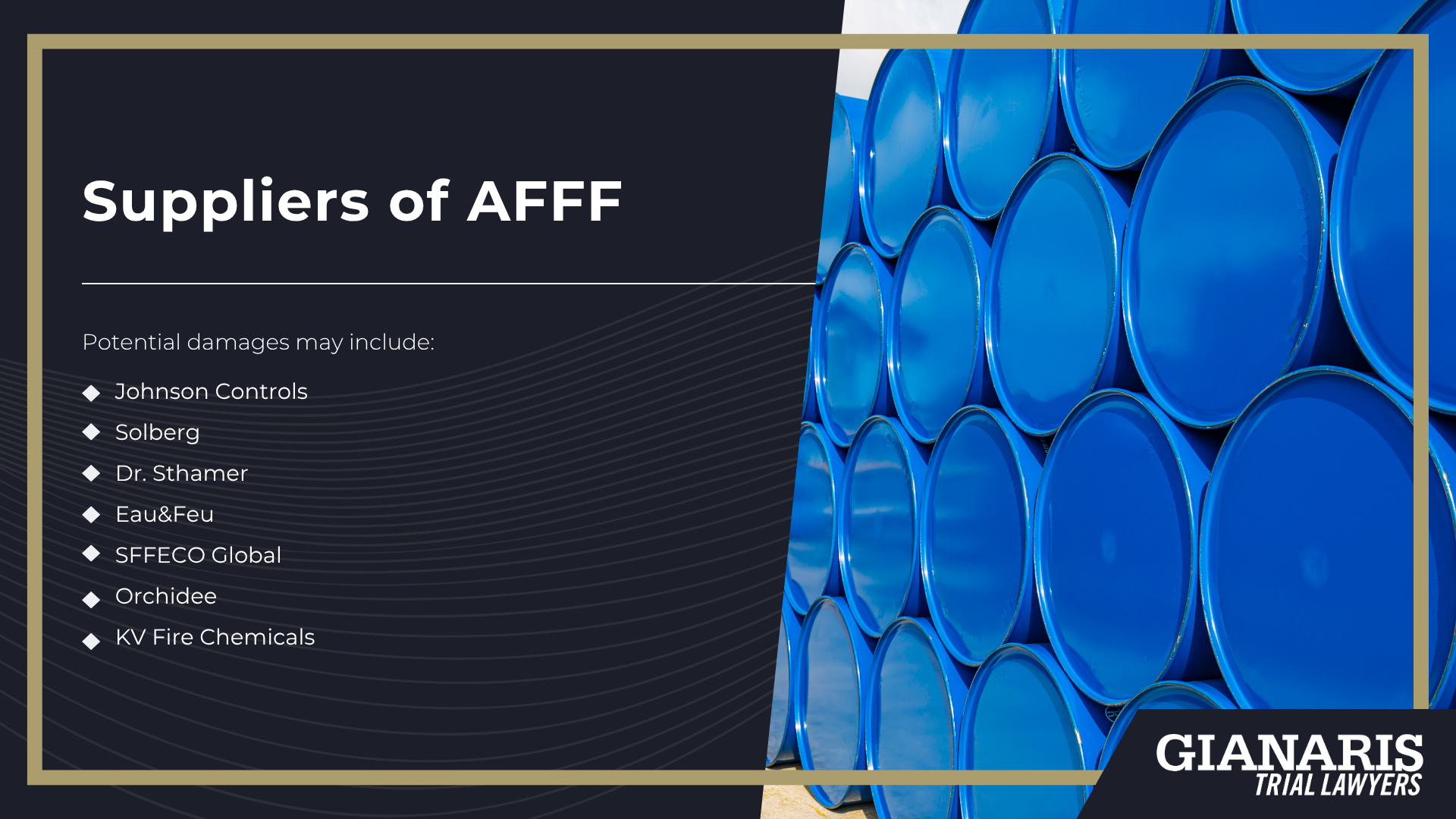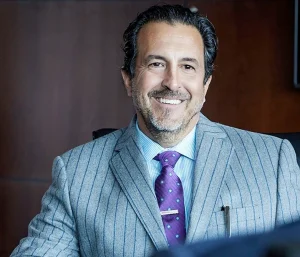Hiring a lawyer is paramount if you’ve been exposed to Aqueous Film Forming Foam (AFFF) due to its potential health risks and environmental implications.
Our lawyers will assess your situation, investigate the circumstances of your exposure, and determine if you have grounds for legal action.
We will help navigate the complex landscape of AFFF litigation, which often involves multiple parties, including manufacturers, distributors, and government entities.
We will advocate on your behalf, ensuring that your rights are protected and that you receive fair compensation for any injuries or damages incurred.
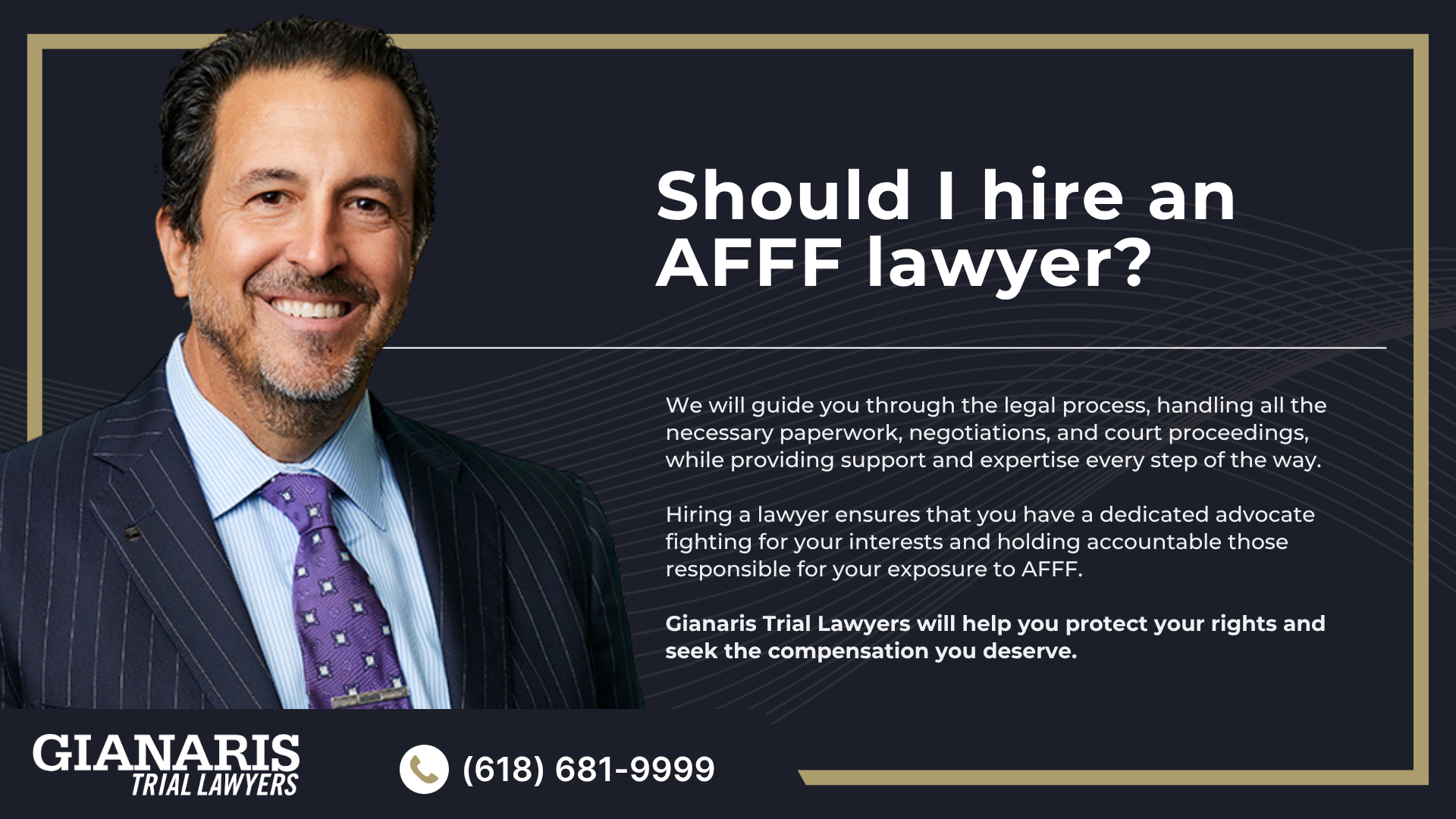
We will guide you through the legal process, handling all the necessary paperwork, negotiations, and court proceedings, while providing support and expertise every step of the way.
Hiring a lawyer ensures that you have a dedicated advocate fighting for your interests and holding accountable those responsible for your exposure to AFFF.
Gianaris Trial Lawyers will help you protect your rights and seek the compensation you deserve.
